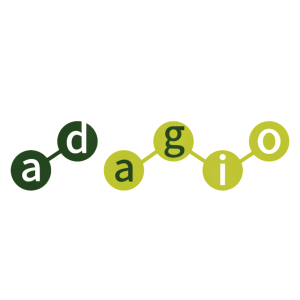Invivyd Commends FDA Focus on Contemporary Evidence In Evaluating Medical Interventions To Prevent COVID-19
Rhea-AI Summary
Positive
- CANOPY Phase 3 trial showed 84% reduction in COVID-19 risk with pemivibart vs placebo
- Protection extended beyond the initial 6-month period into months 7-12 with no additional doses
- FDA's new framework aligns with Invivyd's development approach
- Company advancing next-generation antibodies for improved scalability
Negative
- None.
News Market Reaction – IVVD
On the day this news was published, IVVD declined 5.52%, reflecting a notable negative market reaction.
Data tracked by StockTitan Argus on the day of publication.
- FDA acknowledges that the benefit of repeat doses of COVID-19 vaccine boosters for Americans is uncertain; the updated regulatory framework for COVID-19 vaccines articulated by the Agency generally aligns with recent Invivyd Citizen Petition requests
- In contrast to vaccine boosters, monoclonal antibody (mAb) therapies, including pemivibart, underwent contemporary randomized, placebo-controlled trials to evaluate safety, immunogenicity, and exploratory efficacy in relevant, modern Americans, against relevant, modern immune-evasive SARS-CoV-2 viruses, and over the long-term
- Invivyd plans to advance next generation COVID-19 mAbs to improve product scalability and system-friendliness while preserving strong anticipated mAb preventative efficacy; additional data on Invivyd’s investigational mAb VYD2311 expected this quarter
- Invivyd plans to engage FDA shortly on an expedited pathway to develop high-quality, scalable COVID-19 prevention and treatment options urgently needed by high-risk populations identified by the FDA
WALTHAM, Mass., May 21, 2025 (GLOBE NEWSWIRE) -- Invivyd, Inc. (Nasdaq: IVVD), today commends new U.S. Food and Drug Administration (FDA) leadership on taking important steps to acknowledge and resolve the significant uncertainty surrounding the contemporary COVID-19 vaccine booster efficacy landscape. In a New England Journal of Medicine (NEJM) publication on May 20, 2025, titled “An Evidence-Based Approach to Covid-19 Vaccination,” and in a follow-on live webinar on May 20, 2025, FDA leadership correctly identified gaps in the modern understanding of COVID-19 vaccine booster efficacy and provided a mechanism to resolve those gaps and move forward.
Consistent with the requests set forth in the recently filed Invivyd Citizen Petition, the FDA has now “encouraged [COVID-19 vaccine] manufacturers to conduct randomized, placebo-controlled trials (RCTs) in the population of healthy adults,” using the FDA’s “preferred primary end point” of PCR-confirmed symptomatic COVID-19. Importantly, the FDA has affirmed that these clinical trials should include Americans who have had COVID-19 within the past year, a requirement necessary to evaluate efficacy benefits in “the average American,” and which criterion reflects the widespread, damaging, and ongoing impact of COVID-19 in America. Further, these clinical trials should extend for the time period required to adequately characterize potential efficacy waning, specifically “follow-up should extend for a minimum of six months to ensure that early booster gains persist.”
These fundamental evidentiary questions, which remain unanswered for today’s COVID-19 vaccine boosters, align well with the design and conduct of Invivyd’s CANOPY Phase 3 clinical trial of pemivibart, which assessed the safety, immunogenicity, and exploratory clinical efficacy of the monoclonal antibody pemivibart to meet the same goals under relevant, modern conditions:
1) CANOPY Phase 3 clinical trial included a placebo-controlled, randomized cohort of average Americans who are “at risk of acquiring SARS-CoV-2 due to regular unmasked face-to-face interactions in indoor settings” (Cohort B);
2) CANOPY’s major exploratory clinical efficacy endpoint measured the relative risk reduction of acquiring PCR-confirmed symptomatic COVID-19 in this population, and against modern immune-evasive COVID-19 virus variants, between pemivibart and placebo; and
3) CANOPY Phase 3 clinical trial included a formal evaluation period of six months, during which pemivibart conferred an
More, Invivyd notes that the FDA, writing in the FDA’s recent NEJM and broadcasting via webinar, regards a
While durable and safe vaccines and boosters can be the backbone of protection from infectious disease when technology and human immunobiology allows, some diseases may not allow for high quality vaccine protection in all populations, requiring high technology options such as pharmaceutical monoclonal antibodies. Yesterday, the FDA highlighted an analogy between COVID-19 and Respiratory Syncytial Virus (RSV), in which monoclonal antibody prophylaxis has been the standard of care for neonates and very young (<24 months) children due to the limitations of vaccination strategies and the substantial vulnerability of infants and young children to adverse outcomes. Invivyd shares the appreciation of meaningful protective opportunity for Americans via monoclonal antibody in COVID-19, beyond whatever limitation of repeat COVID-19 vaccination is ultimately expressed in contemporary, placebo-controlled RCTs.
Moving forward, as COVID-19 continues to exert an unacceptable chronic toll on American health via acute infection, hospitalization, and death, as well as the mounting burden of Long COVID, Invivyd plans to advance improved antibodies that allow for more scalable, high-quality protection to the very substantial populations of Americans that require a high level of protection. Invivyd anticipates a clinical update on next-generation monoclonal antibody VYD2311 this quarter and will engage imminently with FDA on expedited development pathways.
About PEMGARDA
PEMGARDA® (pemivibart) is a half-life extended investigational monoclonal antibody (mAb). PEMGARDA was engineered from adintrevimab, Invivyd’s investigational mAb that has a robust safety data package and provided evidence of clinical efficacy in global Phase 2/3 clinical trials for the prevention and treatment of COVID-19. PEMGARDA has demonstrated in vitro neutralizing activity against major SARS-CoV-2 variants, including JN.1, KP.3.1.1, XEC and LP.8.1. PEMGARDA targets the SARS-CoV-2 spike protein receptor binding domain (RBD), thereby inhibiting virus attachment to the human ACE2 receptor on host cells.
PEMGARDA (pemivibart) injection (4500 mg), for intravenous use is an investigational mAb that has not been approved, but has been authorized for emergency use by the U.S. FDA under an EUA for the pre-exposure prophylaxis (prevention) of COVID-19 in adults and adolescents (12 years of age and older weighing at least 40 kg) who have moderate-to-severe immune compromise due to certain medical conditions or receipt of certain immunosuppressive medications or treatments and are unlikely to mount an adequate immune response to COVID-19 vaccination. Recipients should not be currently infected with or have had a known recent exposure to an individual infected with SARS-CoV-2.
PEMGARDA is not authorized for use for treatment of COVID-19 or post-exposure prophylaxis of COVID-19. Pre-exposure prophylaxis with PEMGARDA is not a substitute for vaccination in individuals for whom COVID-19 vaccination is recommended. Individuals for whom COVID-19 vaccination is recommended, including individuals with moderate-to-severe immune compromise who may derive benefit from COVID-19 vaccinations, should receive COVID-19 vaccination. In individuals who have recently received a COVID-19 vaccine, PEMGARDA should be administered at least 2 weeks after vaccination.
Anaphylaxis has been observed with PEMGARDA and the PEMGARDA Fact Sheet for Healthcare Providers includes a boxed warning for anaphylaxis. The most common adverse reactions included systemic infusion-related reactions and hypersensitivity reactions, local infusion site reactions, and infusion site infiltration or extravasation. For additional information, please see the PEMGARDA full product Fact Sheet for Healthcare Providers, including important safety information and boxed warning.
To support the EUA for PEMGARDA, an immunobridging approach was used to determine if PEMGARDA may be effective for pre-exposure prophylaxis of COVID-19. Immunobridging is based on the serum virus neutralizing titer-efficacy relationships identified with other neutralizing human mAbs against SARS-CoV-2. This includes adintrevimab, the parent mAb of pemivibart, and other mAbs that were previously authorized for EUA. There are limitations of the data supporting the benefits of PEMGARDA. Evidence of clinical efficacy for other neutralizing human mAbs against SARS-CoV-2 was based on different populations and SARS-CoV-2 variants that are no longer circulating. Further, the variability associated with cell-based EC50 value determinations, along with limitations related to pharmacokinetic data and efficacy estimates for the mAbs in prior clinical trials, impact the ability to precisely estimate protective titer ranges. Additionally, certain SARS-CoV-2 viral variants may emerge that have substantially reduced susceptibility to PEMGARDA, and PEMGARDA may not be effective at preventing COVID-19 caused by these SARS-CoV-2 viral variants.
The emergency use of PEMGARDA is only authorized for the duration of the declaration that circumstances exist justifying the authorization of the emergency use of drugs and biological products during the COVID-19 pandemic under Section 564(b)(1) of the Federal Food, Drug, and Cosmetic Act, 21 U.S.C. § 360bbb-3(b)(1), unless the declaration is terminated or authorization revoked sooner. PEMGARDA is authorized for use only when the combined national frequency of variants with substantially reduced susceptibility to PEMGARDA is less than or equal to
About CANOPY
The CANOPY Phase 3 clinical trial was designed to evaluate the safety and tolerability of pemivibart and to assess immunobridging from pemivibart to certain historical data from the company’s previous Phase 2/3 clinical trial of adintrevimab (ADG20) for the prevention of symptomatic COVID-19 (EVADE). Additionally, there were pre-specified exploratory endpoints through three, six and twelve months to evaluate clinical efficacy of pemivibart compared to placebo in the prevention of RT-PCR-confirmed symptomatic COVID-19. The latest analysis from the Phase 3 CANOPY clinical trial included 365-day data. The CANOPY clinical trial enrolled participants in two cohorts: Cohort A was a single-arm, open-label trial in adults with moderate-to-severe immune compromise including complex underlying medical conditions. Cohort B was a randomized, placebo-controlled cohort that enrolled adults without moderate-to-severe immune compromise at risk of acquiring COVID-19 due to regular unmasked face-to-face interactions in indoor settings.
About VYD2311
VYD2311 is a novel monoclonal antibody (mAb) candidate being developed for COVID-19 to continue to address the urgent need for new prophylactic and therapeutic options. The pharmacokinetic profile and antiviral potency of VYD2311 may offer the ability to deliver clinically meaningful titer levels through more patient-friendly means such as an intramuscular route of administration.
VYD2311 was engineered using Invivyd’s proprietary integrated technology platform and is the product of serial molecular evolution designed to generate an antibody optimized for neutralizing contemporary virus lineages. VYD2311 leverages the same antibody backbone as pemivibart, Invivyd’s investigational mAb granted emergency use authorization in the U.S. for the pre-exposure prophylaxis (PrEP) of symptomatic COVID-19 in certain immunocompromised patients, and adintrevimab, Invivyd’s investigational mAb that has a robust safety data package and demonstrated clinically meaningful results in global Phase 2/3 clinical trials for the prevention and treatment of COVID-19.
About Invivyd
Invivyd, Inc. (Nasdaq: IVVD) is a biopharmaceutical company devoted to delivering protection from serious viral infectious diseases, beginning with SARS-CoV-2. Invivyd deploys a proprietary integrated technology platform unique in the industry designed to assess, monitor, develop, and adapt to create best in class antibodies. In March 2024, Invivyd received emergency use authorization (EUA) from the U.S. FDA for a monoclonal antibody (mAb) in its pipeline of innovative antibody candidates. Visit https://invivyd.com/ to learn more.
Trademarks are the property of their respective owners.
Cautionary Note Regarding Forward Looking Statements
This press release contains forward-looking statements within the meaning of the Private Securities Litigation Reform Act of 1995. Words such as “anticipates,” “believes,” “could,” “expects,” “estimates,” “intends,” “potential,” “predicts,” “projects,” and “future” or similar expressions (as well as other words or expressions referencing future events, conditions or circumstances) are intended to identify forward-looking statements. Forward-looking statements include statements concerning, among other things, the company’s ongoing research and clinical development activities, as well as future potential research and clinical development efforts, and the timing thereof; Invivyd’s plans to advance next-generation mAb development; Invivyd’s plans to engage FDA on an expedited approval pathway to develop high-quality, scalable COVID-19 prevention and treatment options; expectations regarding regulatory framework and policy articulated by FDA; beliefs about the infectious disease landscape and the potential of pharmaceutical mAbs as an option; Invivyd’s appreciation of a protective opportunity for Americans via mAb in COVID-19; the potential of PEMGARDA as a mAb for pre-exposure prophylaxis (prevention) of COVID-19 in certain adults and adolescents who have moderate-to-severe immune compromise; the potential of VYD2311 as a novel mAb candidate that may be able to deliver clinically meaningful titer levels through more patient-friendly means, and potentially available regulatory pathways; the company’s expectation to provide a clinical update on VYD2311 this quarter and to engage imminently with FDA on expedited development pathways; the company’s devotion to delivering protection from serious viral infectious diseases, beginning with SARS-CoV-2; and other statements that are not historical fact. The company may not actually achieve the plans, intentions or expectations disclosed in the company’s forward-looking statements and you should not place undue reliance on the company’s forward-looking statements. These forward-looking statements involve risks and uncertainties that could cause the company’s actual results to differ materially from the results described in or implied by the forward-looking statements, including, without limitation: the timing, progress and results of the company’s discovery, preclinical and clinical development activities; how long the EUA granted by the FDA for PEMGARDA will remain in effect and whether the EUA is revised or revoked by the FDA; the ability to maintain a continued acceptable safety, tolerability and efficacy profile of any product candidate following regulatory authorization or approval; the success of the company’s in-house sales force, and company’s ability to maintain and expand sales, marketing and distribution capabilities to successfully commercialize PEMGARDA; changes in expected or existing competition; changes in the regulatory environment; the outcome of the company’s engagement with regulators; uncertainties related to the regulatory authorization or approval process, and available development and regulatory pathways; unexpected safety or efficacy data observed during preclinical studies or clinical trials; the predictability of clinical success of the company’s product candidates based on neutralizing activity in nonclinical studies; the risk that results of nonclinical studies or clinical trials may not be predictive of future results, and interim data are subject to further analysis; potential variability in neutralizing activity of product candidates tested in different assays, such as pseudovirus assays and authentic assays; variability of results in models and methods used to predict activity against SARS-CoV-2 variants; whether the epitope that pemivibart and VYD2311 targets remains structurally intact; whether the company’s product candidates are able to demonstrate and sustain neutralizing activity against major SARS-CoV-2 variants, particularly in the face of viral evolution; the company’s reliance on third parties; clinical trial site activation or enrollment rates; the complexities of manufacturing mAb therapies; macroeconomic and political uncertainties; the company’s ability to continue as a going concern; and whether the company has adequate funding to meet future operating expenses and capital expenditure requirements. Other factors that may cause the company’s actual results to differ materially from those expressed or implied in the forward-looking statements in this press release are described under the heading “Risk Factors” in the company’s Annual Report on Form 10-K for the year ended December 31, 2024 and Quarterly Report on Form 10-Q for the quarter ended March 31, 2025, each filed with the Securities and Exchange Commission (SEC), and in the company’s other filings with the SEC, and in its future reports to be filed with the SEC and available at www.sec.gov. Forward-looking statements contained in this press release are made as of this date, and Invivyd undertakes no duty to update such information whether as a result of new information, future events or otherwise, except as required under applicable law.
This press release contains hyperlinks to information that is not deemed to be incorporated by reference in this press release.
Contacts:
Media Relations
(781) 208-1747
media@invivyd.com
Investor Relations
(781) 208-1747
investors@invivyd.com








